FieldWeb Blog.
Get the knowledge and inspiration you need to run your home and commercial service business better.

In the ever-evolving landscape of business operations, efficiency is the name of the game. With the advent of advanced technology, field service management software has emerged as a game-changer for businesses across various industries. In 2024, the demand for productivity enhancement has never been more pressing, and field service management software stands at the forefront of this transformation.
Let's delve into how field service management software is revolutionizing productivity in 2024:
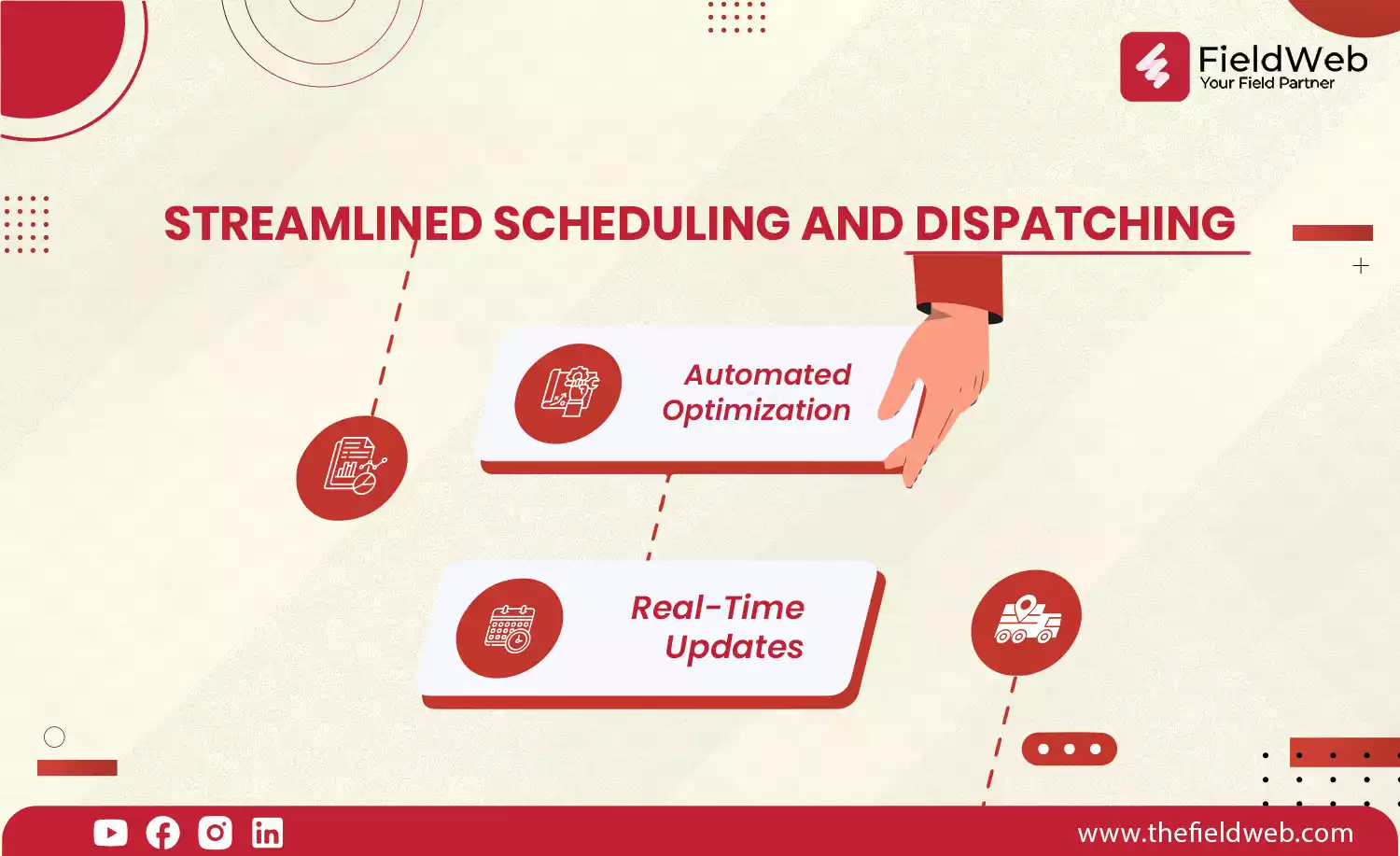
Automated Optimization: Field service management software leverages algorithms to optimize scheduling and dispatching, ensuring that technicians are assigned tasks efficiently based on location, expertise, and availability.
Real-Time Updates: With real-time updates, dispatchers can monitor the progress of field technicians and dynamically adjust schedules to accommodate emergencies or changes in priorities.
Example: Consider a plumbing company using field service management software. When a customer calls with a burst pipe emergency, the software automatically identifies the nearest available technician with the necessary skills and dispatches them immediately, minimizing response time and customer inconvenience.
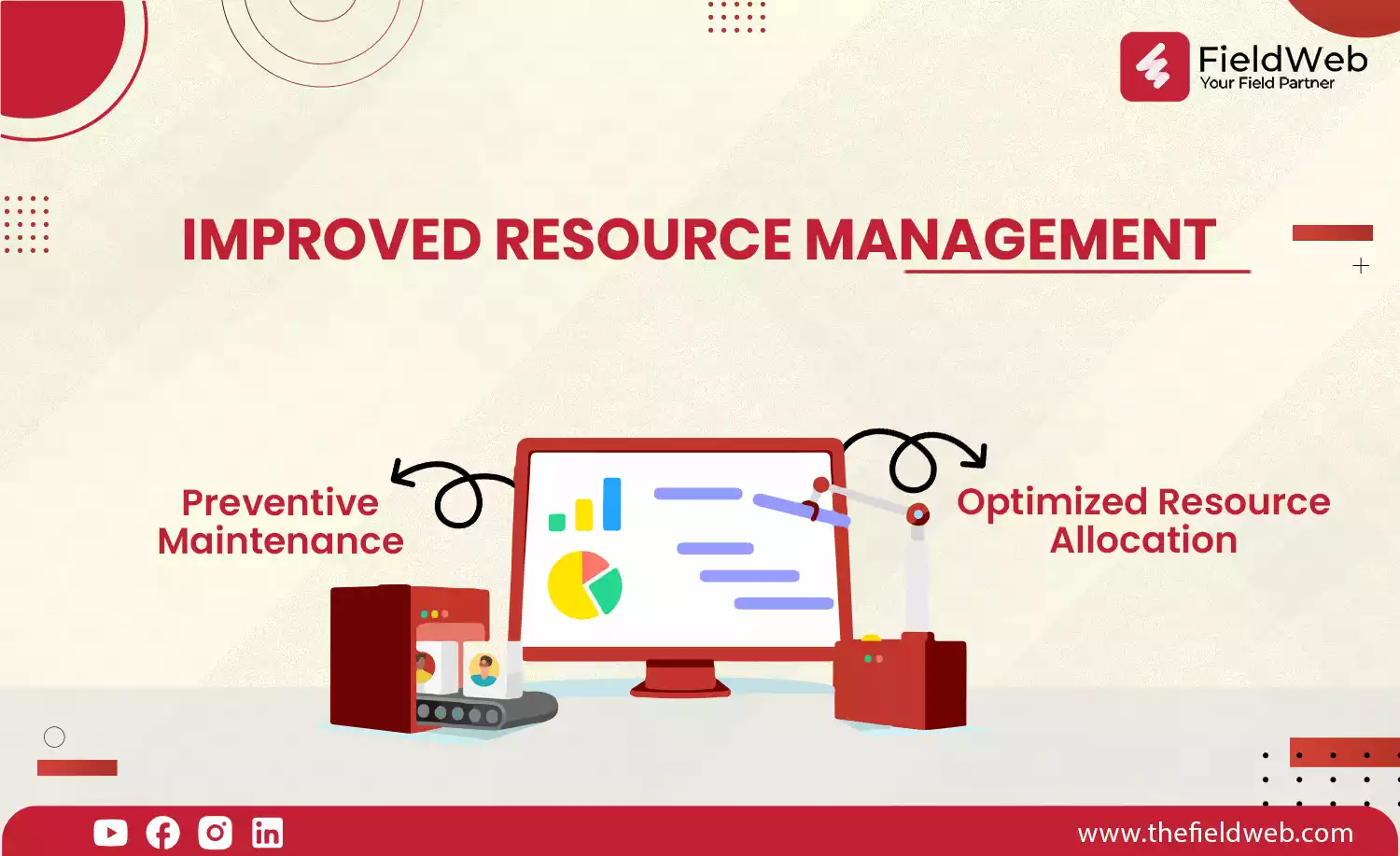
Optimized Resource Allocation: Field service management software helps businesses allocate resources more effectively by tracking inventory levels, equipment availability, and technician skill sets in real time.
Preventive Maintenance: By implementing preventive maintenance schedules based on equipment usage data, businesses can reduce downtime and prolong the lifespan of assets.
Example: A manufacturing plant using field service management software can proactively schedule maintenance for critical machinery based on performance analytics, preventing costly breakdowns and production delays.
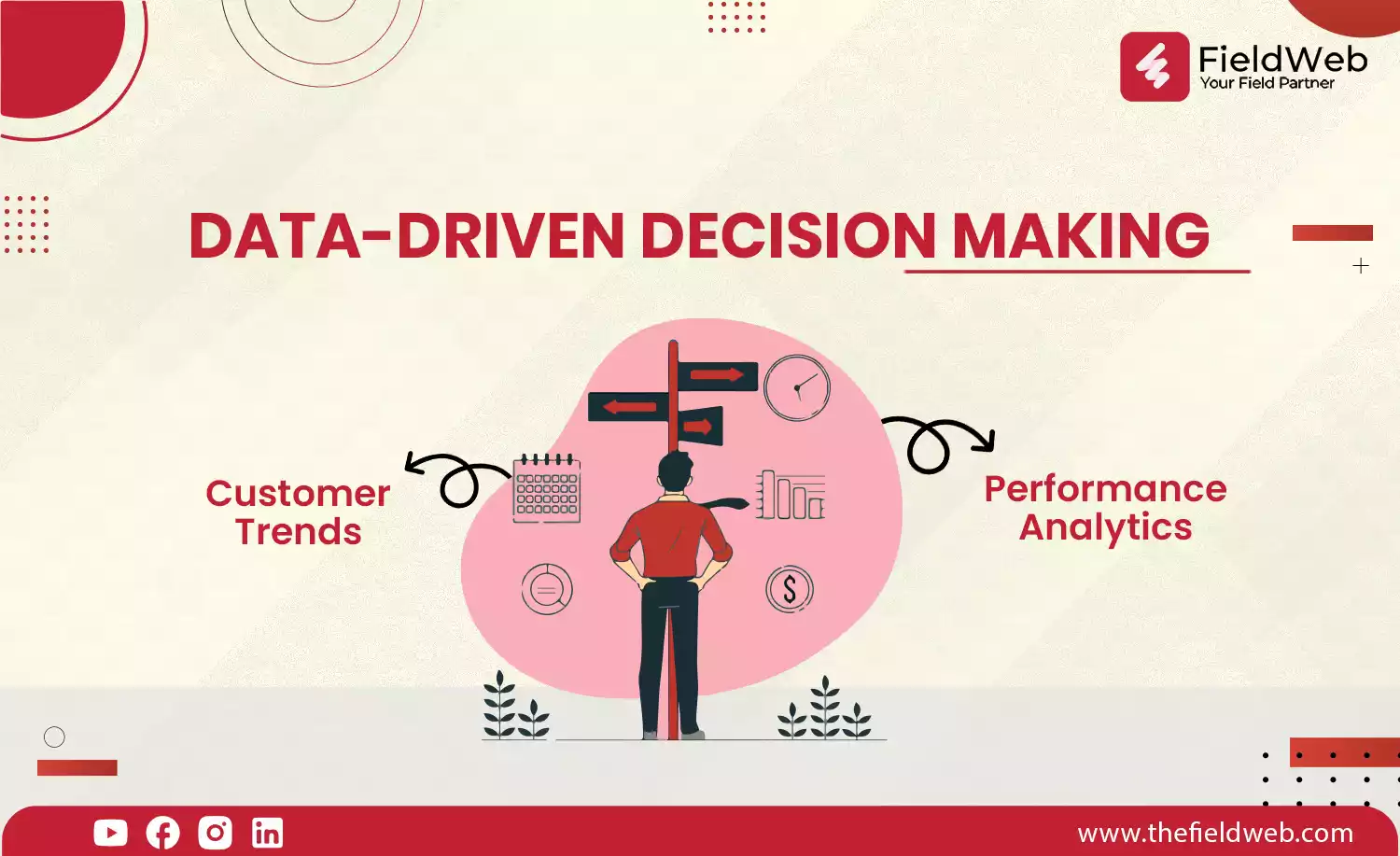
Performance Analytics: Field service management software provides actionable insights through performance analytics, enabling businesses to identify trends, optimize workflows, and make informed decisions.
Customer Trends: By analyzing customer feedback and service history data, businesses can tailor their offerings to meet evolving customer needs and preferences.
Example: A telecommunications company analyzes customer service request data using field service management software to identify recurring issues in certain geographic areas. Armed with this information, they can proactively address these issues, improving customer satisfaction and loyalty.
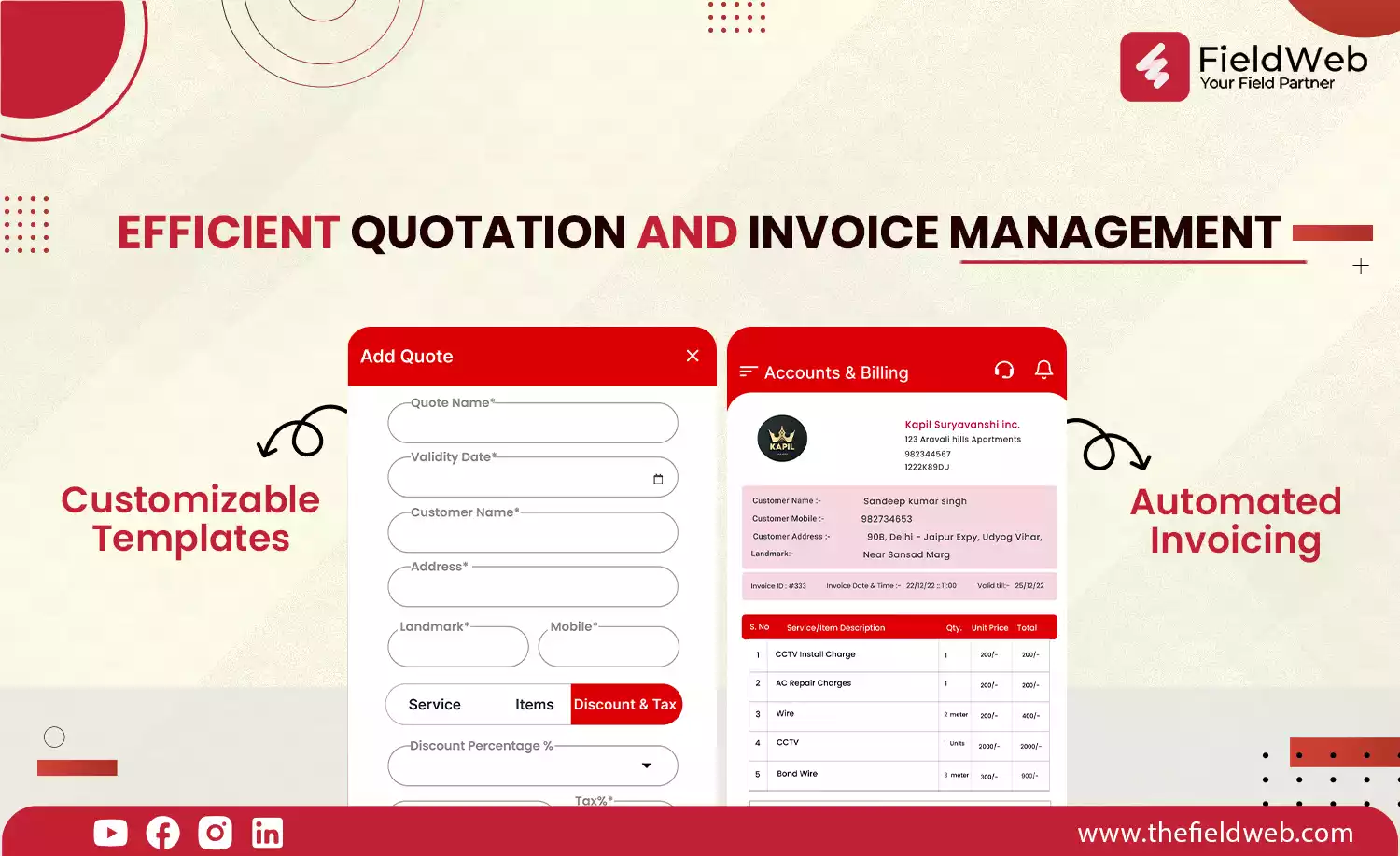
Customizable Templates: Field service management software offers customizable quotation and invoice templates, allowing businesses to create professional-looking documents tailored to their brand.
Automated Invoicing: Automated invoicing features streamline the billing process by generating invoices automatically upon completion of service tasks, reducing administrative overhead.
Example: An HVAC company sends out invoices immediately after completing a service call using field service management software. The automated process saves time and ensures prompt payment from customers.
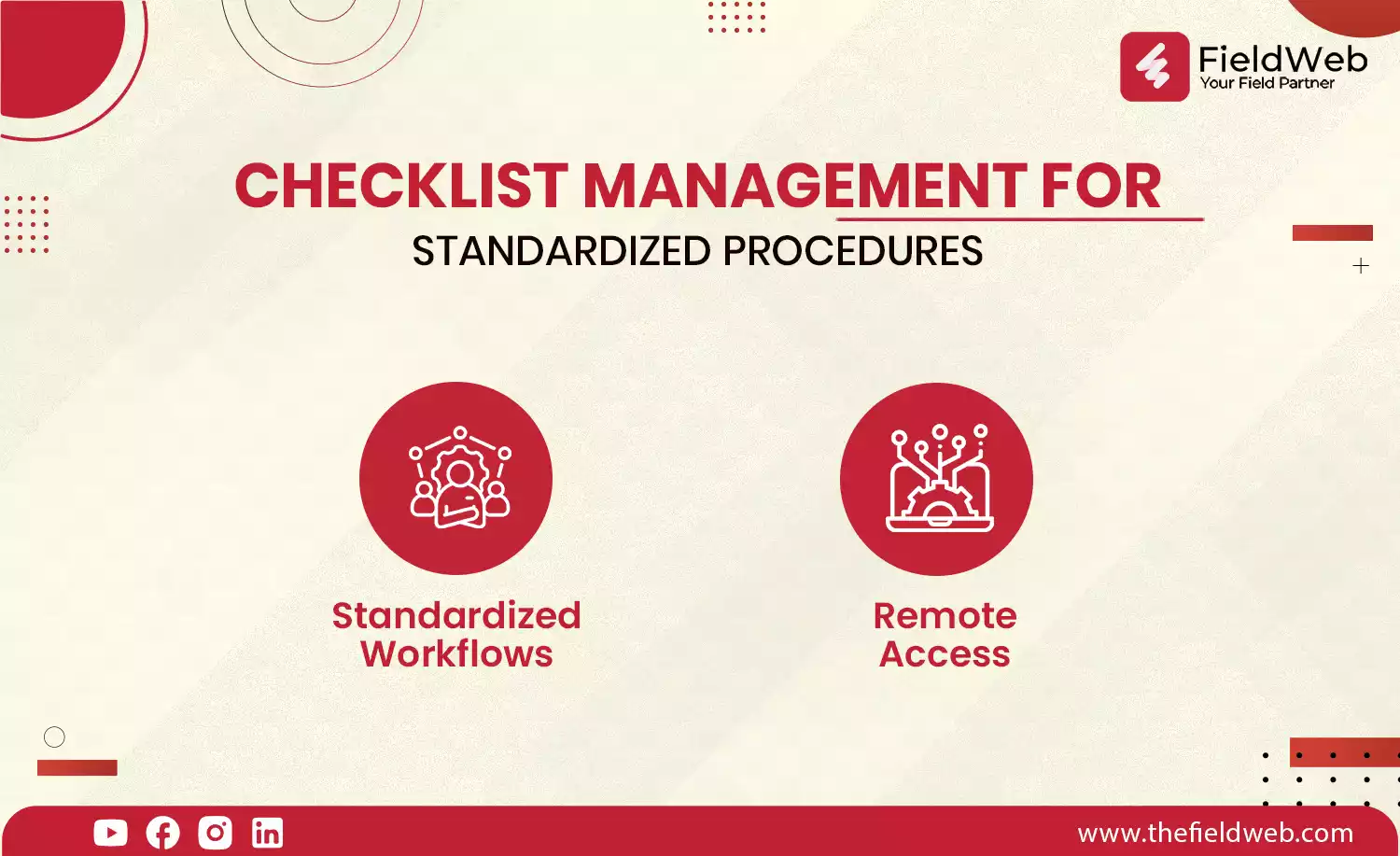
Standardized Workflows: Field service management software enables businesses to create and distribute checklists for standardized procedures such as equipment inspections, ensuring compliance with regulatory requirements and quality standards.
Remote Access: Technicians can access checklists from their mobile devices, complete tasks onsite, and submit updates in real time, improving efficiency and accuracy.
Example: A facilities management company uses field service management software to conduct safety inspections at client sites. Technicians follow digital checklists on their tablets, documenting observations and flagging potential hazards for immediate attention.
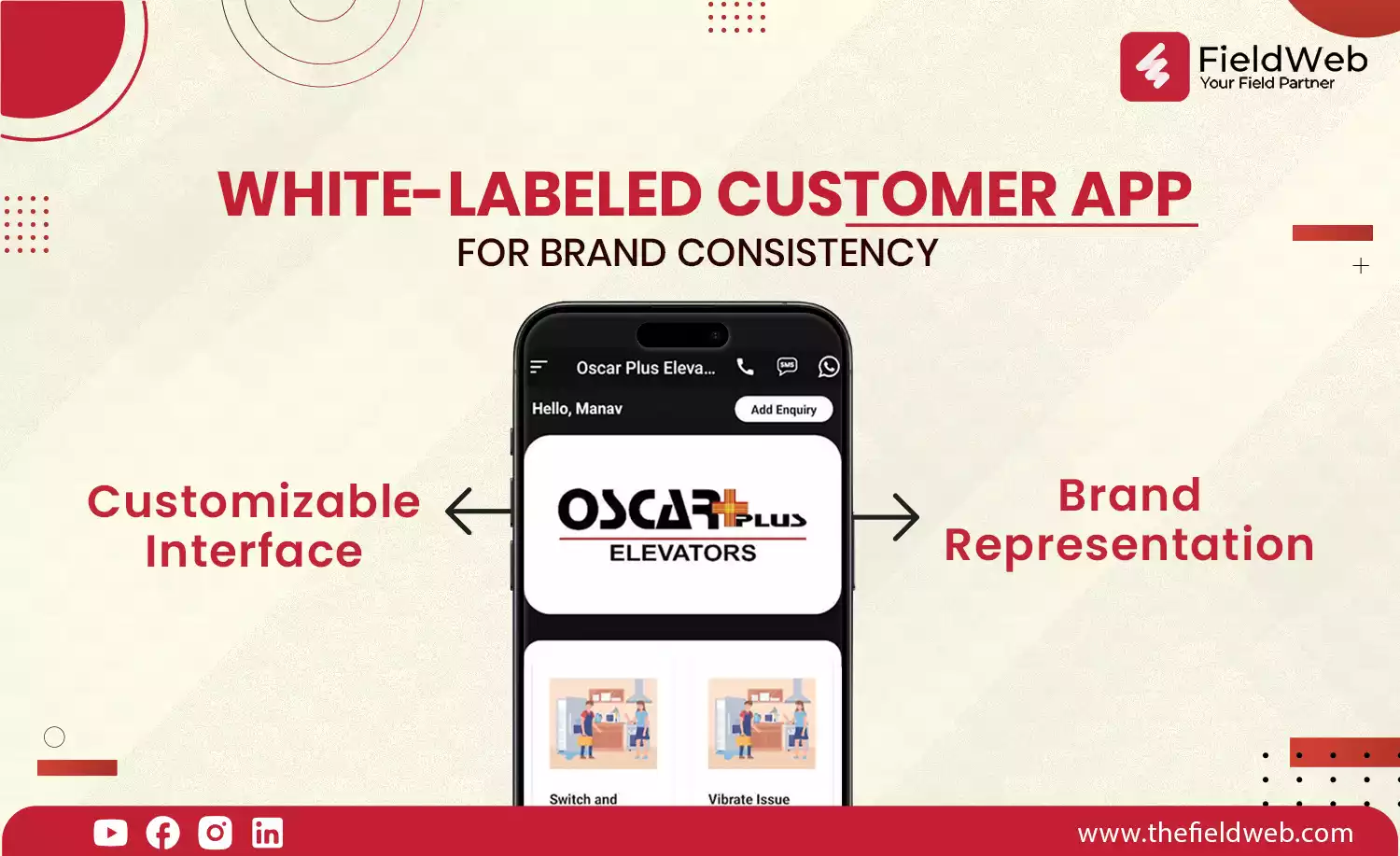
Brand Representation: A white-labeled customer app allows businesses to maintain brand consistency throughout the customer experience, from service requests to feedback submissions.
Customizable Interface: Field service management software offers customizable interfaces, enabling businesses to tailor the customer app to align with their brand identity and messaging.
Example: A property management company uses a white-labeled customer app powered by field service management software. Tenants can submit maintenance requests through the app, which features the company's logo and colors, enhancing brand recognition and trust.
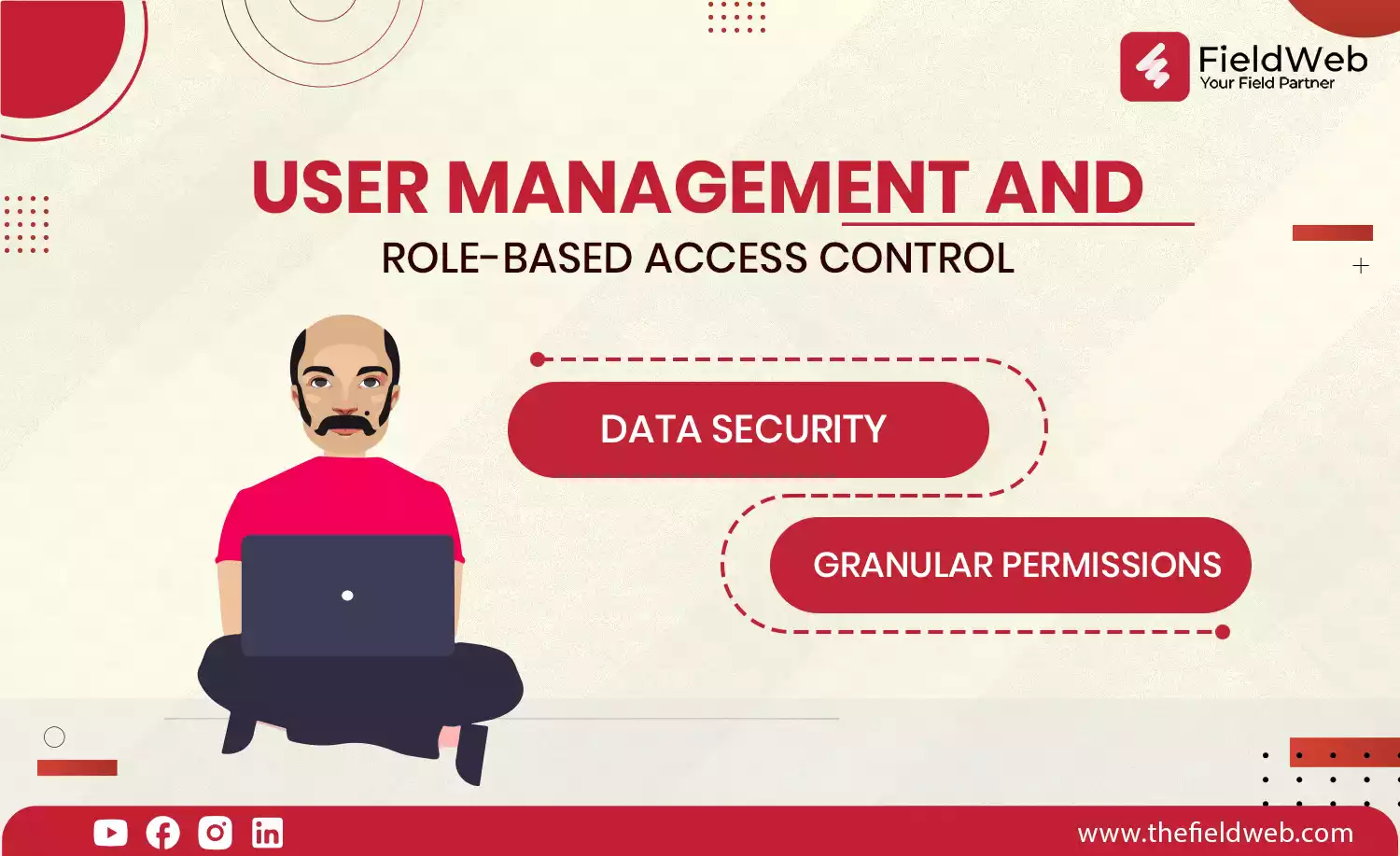
Data Security: Field service management software prioritizes data security by providing robust user management features and role-based access control.
Granular Permissions: Administrators can assign granular permissions to users based on their roles and responsibilities, ensuring that sensitive information is only accessible to authorized personnel.
Example: A security services provider uses field service management software to manage user access for its security personnel. Guards have access to incident reports and client information relevant to their assigned locations, while managers have broader access to oversee multiple sites and operations.
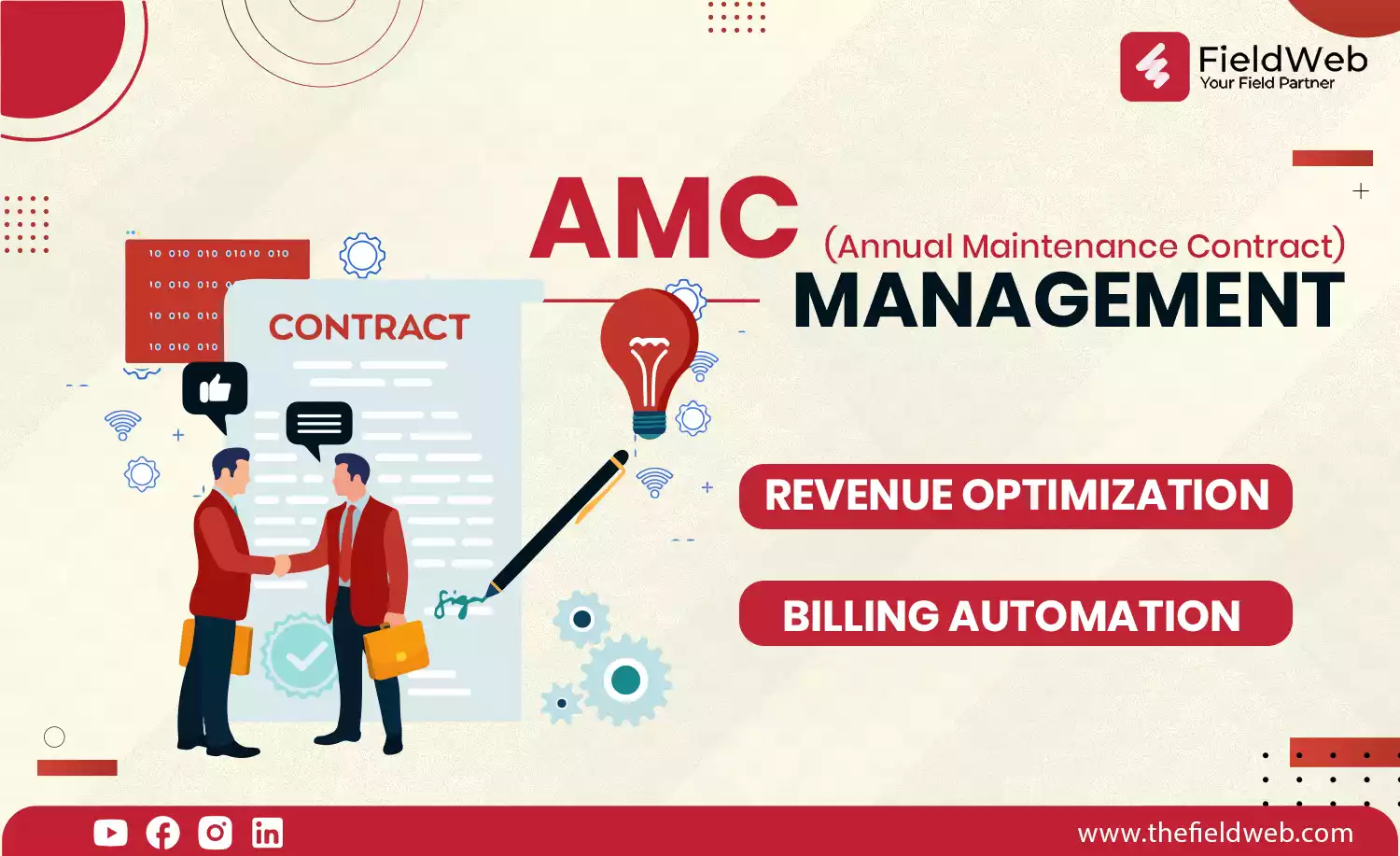
Revenue Optimization: AMC management features help businesses optimize revenue streams by automating contract administration and renewal processes.
Billing Automation: Field service management software automates billing cycles for annual maintenance contracts, ensuring timely invoicing and payment collection.
Example: An elevator maintenance company utilizes field service management software to manage its annual maintenance contracts with building owners. The software sends automated reminders for contract renewals and generates invoices upon contract expiration, streamlining the billing process and ensuring consistent revenue flow.

Cost Tracking: Field service management software enables businesses to track expenses accurately, from materials and labor to travel and overhead costs.
Budget Allocation: By analyzing expense data, businesses can allocate budgets more effectively, identifying areas for cost reduction and optimization.
Example: A landscaping company uses field service management software to track expenses for its projects. By comparing actual costs against budgeted amounts, the company identifies opportunities to optimize resource allocation and improve profitability.
In conclusion, field service management software is a multifaceted solution that empowers businesses to streamline operations, enhance customer satisfaction, and drive profitability. From streamlining scheduling and dispatching to managing annual maintenance contracts and controlling expenses, the benefits of field service management software are extensive and far-reaching.
As businesses navigate the dynamic landscape of 2024 and beyond, investing in field service management software like FieldWeb is essential for staying competitive and achieving sustainable growth. Discover the transformative power of FieldWeb today and unlock the full potential of your field service operations. Schedule a demo now and embark on a journey towards enhanced productivity and success.